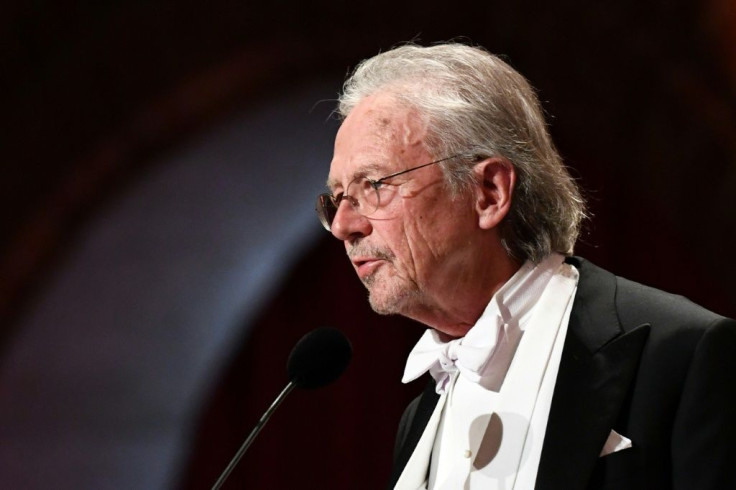Kosovo Declares Nobel Laureate Handke 'Persona Non Grata'

Kosovo declared Peter Handke a 'persona non grata' on Wednesday in the latest protest against his induction as a Nobel literature laureate, barring the Austrian writer from a place he has visited numerous times.
The Swedish Academy's pick for the 2019 prize has reopened old wounds in the Balkans, where many see Handke as an apologist for Serb atrocities during Yugoslavia's bloody collapse.
One Nobel committee member resigned over the choice, while Tuesday's award ceremony was boycotted by representatives of the embassies of Albania, Bosnia, Croatia, Kosovo, North Macedonia and Turkey.
"Today I have decided to declare Peter Handke as not welcome in Kosovo. He is a non-grata person... Denying crimes and supporting criminals is a terrible crime," Kosovo's Foreign Minister Behgjet Pacolli wrote on Facebook.
The writer is not popular among Kosovo's ethnic Albanian-majority, who fought Belgrade for independence in a 1998-99 war that claimed 13,000 lives.
But he was a frequent guest in the tiny Serb enclave of Velika Hoca, one of several small ethnic Serb communities scattered around the former Serbian province.
Handke has visited Velika Hoca at least five times and donated nearly 100,000 euros ($110,000) to the community of 500 people, whose village is nestled among the rolling hills of southern Kosovo.
"Even if there are big problems, I think life has a good rhythm here", the writer said during a 2014 visit.
"I can be alone here. I can hide. I can walk very hidden behind the hills," he added.
Handke's elevation to Nobel laureate has also been painful for many Bosnian Muslims, as he is accused of questioning the genocide in Srebrenica, where Bosnian Serbs slaughtered 8,000 Muslim men and boys in 1995.
On Wednesday he was formally barred from Bosnia's capital Sarajevo, where the regional government said his appearance would "provoke the anger and humiliation" of war victims.
Yet he is still welcome to visit the Serb-run zone that spans nearly half of Bosnia's territory -- a legacy of the war that left the country carved up along ethnic lines.
On Tuesday Handke told RTRS, the public broadcaster in Bosnia's Serb-run region that he would like to visit "in the spring".
Handke has defended his work and denied any allegiance to the late Serbian strongman Slobodan Milosevic.
Critics say Handke made his loyalties clear by speaking at the funeral of Milosevic, who died in 2006 while on trial in The Hague for genocide, war crimes and crimes against humanity.
Handke's 1997 book "A Journey to the Rivers: Justice for Serbia" was also accused of minimising Serb war crimes.
But among Serb fans, Handke is still celebrated for taking note of their suffering during the conflicts and challenging the narrative that Serbs were the sole aggressors in the wars.
In Belgrade, one politician suggested creating a human rights prize in Handke's name on Wednesday.
Handke was one of "very few who searched for the truth during the 1990s," said MP Mirjana Dragas, describing the author as a "brave, but above all great, novelist".
© Copyright AFP 2024. All rights reserved.




















